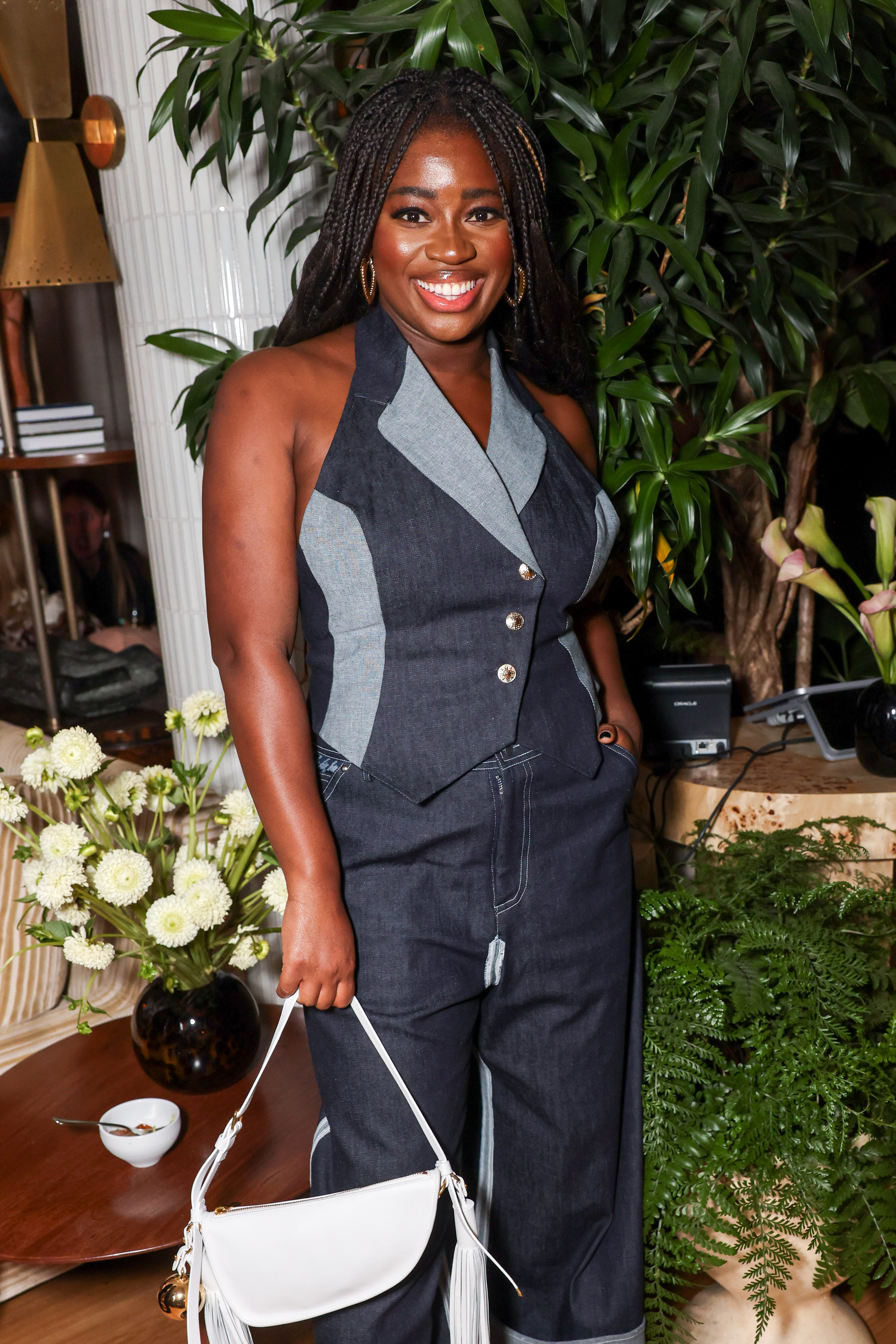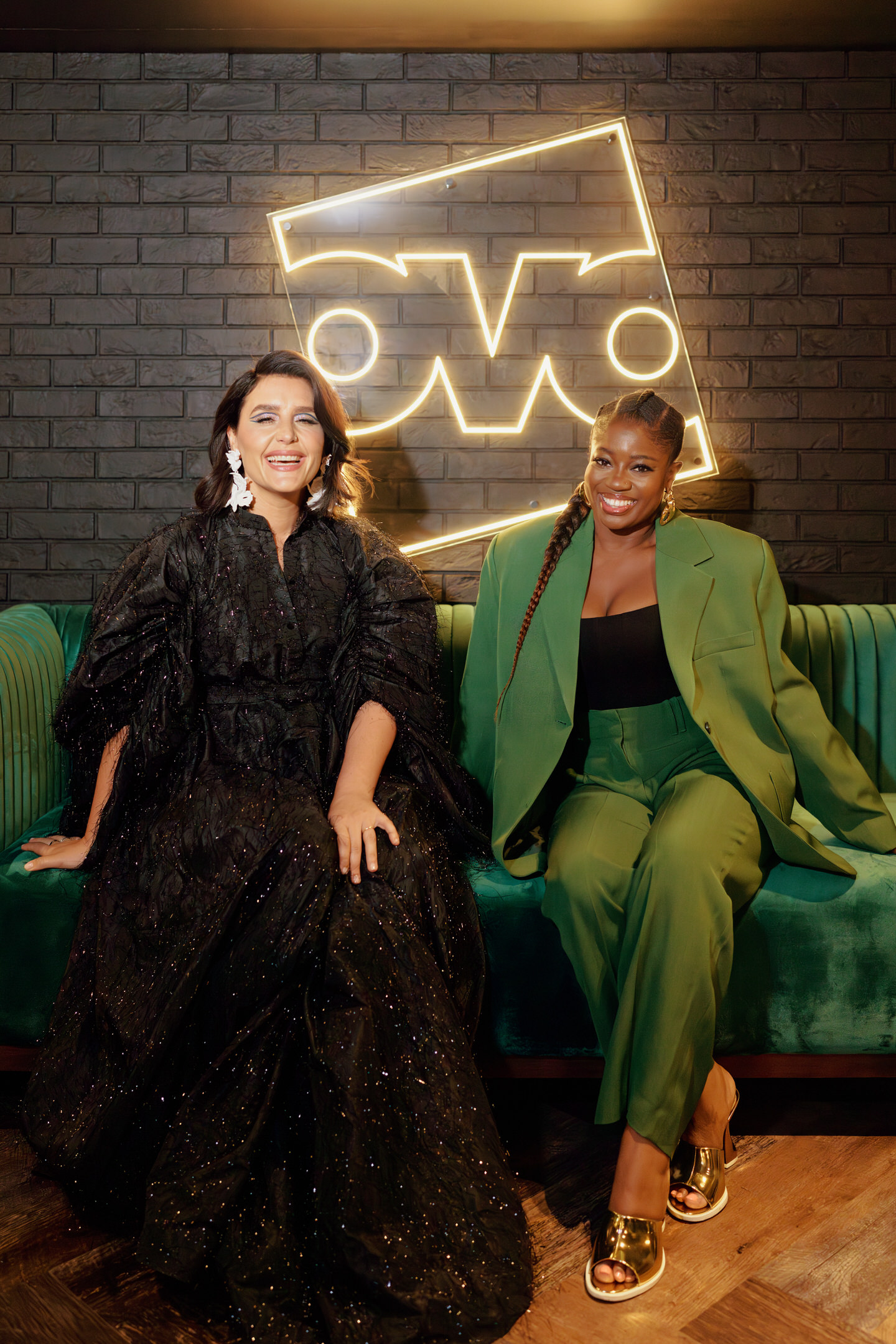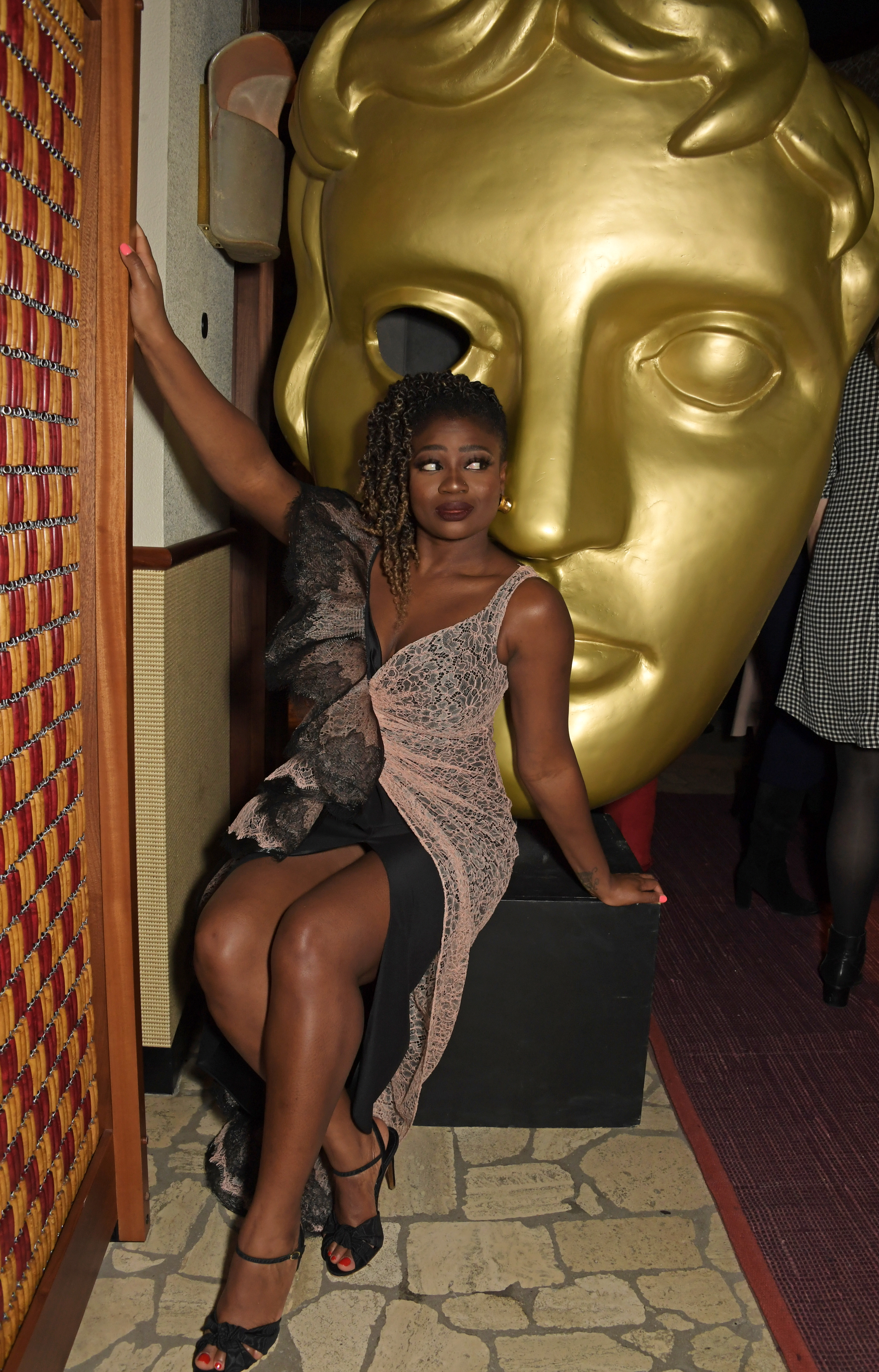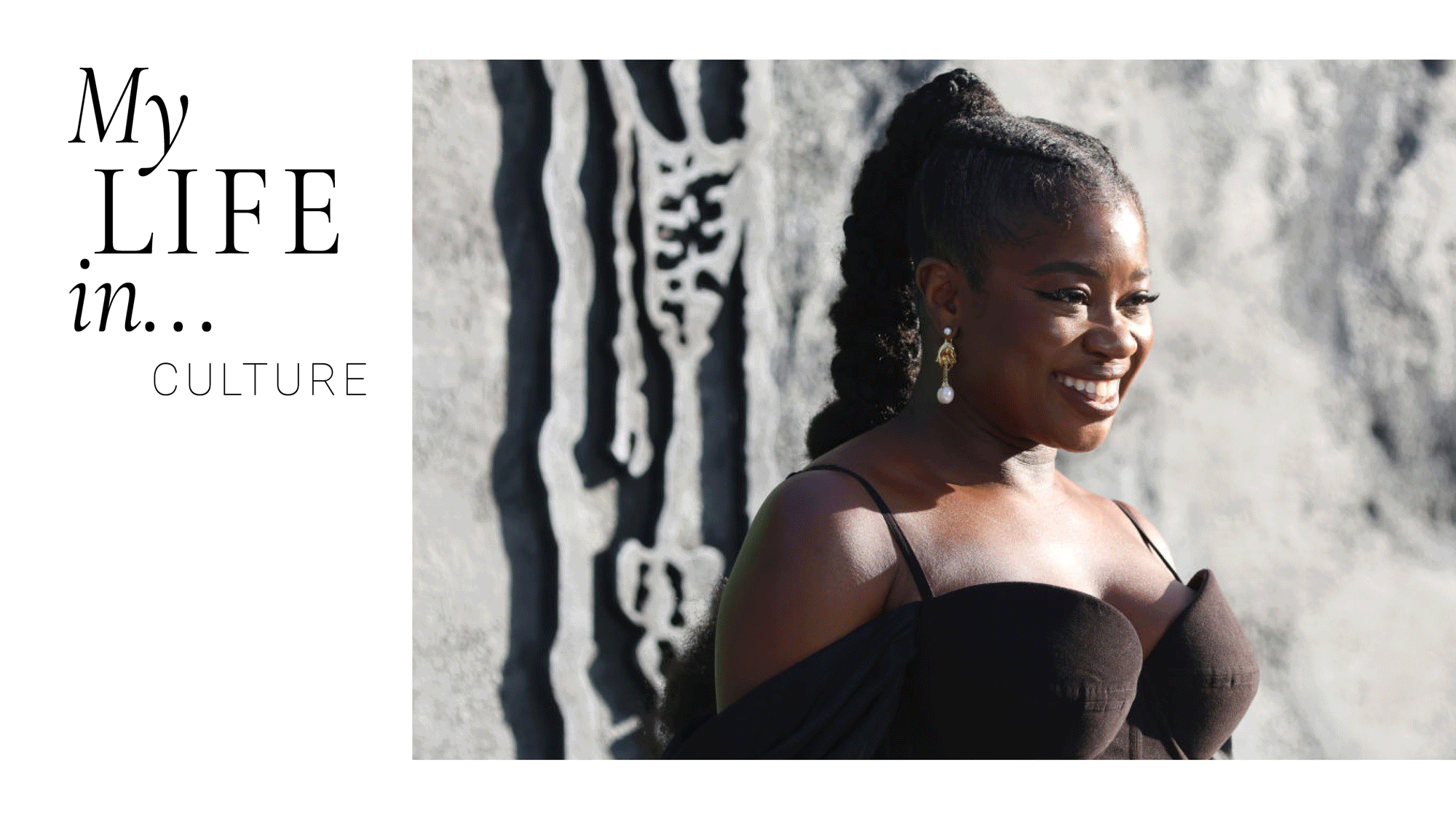It’s a cliche to describe someone’s energy as “infectious”, but in Clara Amfo’s case, it’s accurate, which was a relief to me, as I was knackered the day Clara and I caught up on the fly. We’d both been partying at Notting Hill Carnival and I was kicking myself for not being better prepared, something Clara could never be accused of; “I hate coming into a situation not knowing anything—if I'm given a TV show to watch, I'll watch the series.” she says. I take note.
Clara Amfo is charismatic. It sounds obvious, but I think it bears repeating and I also suspect it’s why OVO tapped her and her mate Jessie Ware to show off the benefits of their loyalty programme, OVO Beyond, which rewards customers—like a spot at an intimate Jessie Ware gig—for making greener choices. I’m not an OVO customer, and like Clara, I can’t drive (a source of shame for me until I met Clara, who of course, had a positive spin on it), but I did manage to wangle a space at the Jessie Ware gig; a sublime experience which granted me access to both musical stalwarts in their element. It also gave me the distinct impression that Clara would find her element anywhere, that in any room, she’ll find her people. “I love doing stuff with friends, but there is something special about enjoying a moment with a bunch of strangers that you’re never gonna see again,” she later confirms.
When it came to editing our conversation for brevity, I read all of Clara’s answers in her voice—not just because I’ve grown up listening to her on Kiss FM, Live Lounge, and the BRIT Awards—but because she was so effusive when we spoke, our interview left an audio imprint in my memory. It might’ve made me a better interviewer, too, not least because I now have Clara’s fail-safe question in my back pocket. “I always like to ask somebody—sincerely— ‘How are you at this moment?’ Because I think it makes people ask that question a bit more honestly,” she explains. So, without further ado, I decided to find out how Clara Amfo really is…
Clara, how are you in this moment?
Well, thank you for asking me. So, in this moment I am delightfully overwhelmed. That’s how I would describe it—I am delightfully overwhelmed. It's always a Catch-22, isn't it? I love being busy even when I’m just revelling in the chaos.

Could you pick one particular song or artist that has really deeply resonated with you?
I’ve been so spoiled. I’ll catch little things on TV or I’ll be listening on Spotify, and I’m like, “Clara, you spent intimate time with that person and you’ve seen this thing live right in front of your face—not everyone gets to do that.”
When Raye debuted Ice Cream Man, sort of live on my radio show it was really, really powerful. We all had a little cry afterwards ‘cos it’s a really intimate and painful song that she’d written about the sexual assaults she’d experienced at all ages of her life. It’s a topic that I think resonates deeply with a lot of people. I remember thinking, ‘That really, really hit me’.
How have your music tastes developed and been shaped by the different cultures that you’ve been exposed to?
I’ve never been a person who said, “I don’t like this genre of music”. I don't believe in speaking in absolutes about genres of music because I truly believe you can find at least one song you like within a genre of music, even if you don’t like most of it. I have pretty eclectic taste, and I attribute a lot of that to my older brothers. I can’t imagine being one of those people who only listen to one type of music—that's sad for me. You're selling yourself short of some really great experiences.
Music has always been my North Star.

Clara Amfo and Jessie Ware at an exclusive gig for OVO Beyond customers
What role do you think music plays in addressing social and cultural issues?
I’m going to paraphrase her terribly, so I hope she doesn’t roll in her grave too much, but Nina Simone says it’s an artist’s duty to reflect the times—or something to that effect—and I believe that. I’m not saying every artist has to be an activist, and not every artist wants to be an activist—and that’s OK—but I do think there is a responsibility with having a platform.
If you can effect positive change and you’ve got the chance to do it, I think it’s a gift.
I’ve seen, within my lifetime, the power of music to bring people together; to influence culture, to influence people to essentially, do the right thing. I don’t think we’ve ever existed where that hasn’t been a thing; if you think about some of the most famous songs in pop culture, a lot of them are protest songs.

There's always been songs to elevate people, to liberate people, and to make people think differently.
What’s your favourite way to experience culture?
I love a trip to a gallery, ideally on my own or with one friend—never more than groups of two. I love the cinema—open-air cinemas where possible—I think it’s a really fun communal experience, even though people can be annoying cos I swear, I’m always sat by the people that get up 50,000 times or eat the loudest.
There is something special about enjoying a moment with a bunch of strangers that you’re never gonna see again. It’s quite magical when you think about it, isn’t it?
How do you think your upbringing influenced your approach to storytelling and interviews?
Ghanaians love to tell a story. Ghanaian folklore is really big in the culture and it’s funny seeing it infiltrate mainstream culture. Ghanaians love the goss, just via intonation of voice, you know something juicy is going on.
I think my upbringing definitely influences how I tell stories. My dad in particular was really well travelled and well read. And I think he had an influence on me and my curiosity—he was a very curious person about people, and I think I 100% inherited that.
Where is on your bucket list?
Egypt, Egypt, Egypt. I need to see the pyramids. I wanna see them for myself and feel insignificant and amazed. Could that even be recreated in 2024? Did the Egyptians have links to aliens?
I would love to go to Zimbabwe or Tanzania. I really wanna go to Singapore as well. Yeah, so much. I wanna go back to Brazil, I love Brazil.
How do you immerse yourself in the local culture when you travel to a new destination?
Food and galleries. I always wanna go to the best auntie spot in any area, and I wanna check out the local art gallery because that will always tell you everything you need to know about an area. I love going to gigs in other countries, that is truly one of my favourite things to do. It’s always interesting observing how different cultures react to global artists.
You worked with your mate Jessie Ware on OVO’s campaign to encourage people to be greener—how do you think music can inspire people to live more sustainably?
I think music can inspire people to be greener. We’re not trying to be sanctimonious out here, but small steps make big leaps. Everyone is trying to do their best, and there are some things people can’t avoid doing that aren’t the most green, so I think it’s about having an awareness; whether that’s switching your light bulbs or having a smart metre.
Are you spontaneous or an itinerary planner?
I’m a bit of both, but I lean more towards the spontaneous. I always like to go somewhere where I can be as lazy as I like, but I can also be as busy as I like.
I don’t like being somewhere where I don’t have the option of doing something fun.
Are there any experiences you’ve had while travelling that have changed your perspective on a culture or a social issue?
As a West African person, it’s something I’ve always known, but I think I would always encourage people to not believe—or to not buy into—the perspective of a continent. One of my biggest pet peeves is people who describe Africa as a country, not a continent; there are lots of different countries in there.
I think through things that we’ve seen, even though the intentions can be good—like via certain charity things—people have got a very limited view of what the continent of Africa has to offer.
I think a Westernised lens of certain countries can be quite dangerous.
I think you’ve got to see stuff for yourself. I can’t stand when people visit somewhere that’s maybe not doing as well economically as where they’re from and they’re like “Oh my God, do you know they have so little?” Shut up! People are just living. I think we can all learn to be a little bit less patronising of other people’s countries.
What trends or movements are you most excited about right now?
Body neutrality—I don’t know if I would even call it that—I’m just very much at a point where when it comes to your body, do what you feel, babe.

